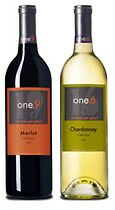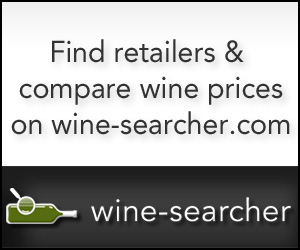Low-carb wine: So what?
 U.S. regulators gifted the wine industry with the next best thing to a license to steal last month, when they eased a long-standing prohibition against nutritional claims on alcoholic-beverage labels to permit qualifying wines to declare themselves "low-carbohydrate."
U.S. regulators gifted the wine industry with the next best thing to a license to steal last month, when they eased a long-standing prohibition against nutritional claims on alcoholic-beverage labels to permit qualifying wines to declare themselves "low-carbohydrate."
Major industry players have not been loath to embrace this opportunity to grab a piece of the chaotic "low-carb" market. Driven by trendy diet programs like Atkins and South Beach, nearly 1,000 new low-carb food products have entered the marketplace in recent years, Consumer Reports magazine reported in its current (June 2004) edition.
Now the corporate wine industry is hurrying to join the party.
- Beverage giant Diageo - which may have inspired the April labeling decision by the U.S. Treasury Department's Alcohol and Tobacco Tax and Trade Bureau (TTB) with its announcement last autumn that it would begin including nutrition information on wine labels - recently announced that it intends to list calorie and carbohydrate content on its mass-market BV Coastal, Sterling Vintners Collection and Century Cellars labels.
- Sutter Home Family Vineyards, which has already demonstrated its canny ability to spot a trend by virtually creating the "blush" wine niche as an early adopter of White Zinfandel a generation ago, plans to market its dry wines as naturally low-carb.
- Yesterday Louisville-based drinks conglomerate Brown-Forman unveiled two new wines that will proudly bear their carbohydrate grams per serving as the label name: One.6 Chardonnay and One.9 Merlot. Intended to sell at the $10 point through mass-market distributors like CostCo and Wal-Mart, these new wines will be the beneficiaries of a $5 million national advertising campaign this summer.
Although some industry analysts believe the low-carb craze has peaked, no one doubts that there's still a mass of profit to be made by harvesting this market. In the beer industry, Anheuser-Busch Corp. has been coining money with its recent low-carb entry, Michelob Ultra; and pollsters estimate that 30 million to 60 million Americans are trying to watch their weight by counting carbs in Atkins-style diets.
But can you really expect to watch the pounds and inches melt away by switching over to "low-carb" wine?
Hardly. Let's look at some facts and figures:
- As long as you stay away from sugary dessert wines, dry table wine by nature is a "low-carb" beverage, most of its sugars having been converted to alcohol by fermentation. According to our
"Nutritional analysis of wine" feature,
http://www.wineloverspage.com/wines/nutrition.shtml
using data from the U.S. Department of Agriculture, a 5-ounce glass of a typical dry red wine contains 102 calories and 2.41 grams of carbohydrates. A typical glass of white wine offers 96 calories and just 1.13 grams of carbs. (Note that specific brands may vary, depending on how much residual sugar remains in the wine after fermentation. Brown-Forman's new One.9 red, on this basis, may be a bit more dry than the average red, but its One.6 white appears unexceptional in the white-wine category.)
- The TTB ruling will permit the use of "low carbohydrate" on the label of any wine that contains no more than 7 grams of carbohydrates per serving, three to six times the average for fully dry wines; this generous interpretation would allow a rather sweet wine to make the claim. Diageo's BV Coastal Estates 2002 Chardonnay, for instance, will reportedly claim 3 grams of carbs per serving, which is perceptibly off-dry.
- Although ethanol (beverage alcohol) is not a carbohydrate, many authorities say that the body metabolizes it in much the same way as a carbohydrate. This is why most Atkins/South Beach-type diet plans advise against consuming any alcoholic beverages during the early stages of a diet, and some recommend against it entirely. The guru himself, the late Robert C. Atkins, wrote, "Here's the problem with all alcoholic beverages, and the reason I recommend refraining from alcohol consumption on the diet. Alcohol, whenever taken in, is the first fuel to burn. While that's going on, your body will not burn fat. This does not stop the weight loss, it simply postpones it, since the alcohol does not store as glycogen, you immediately go back into ketosis/lipolysis after the alcohol is used up."
In short, if you're concerned about carbs, you're not going to see much benefit from choosing wines labeled "low-carb." To hammer home the point, all dry wines are low-carb.
Personally, I'm not much of an Atkins advocate. If I'm trying to trim down, as I often do, I favor moderating overall calorie intake while enjoying a healthy balance of carbs, fat and protein - including a modest amount of wine. As I wrote in the Wine Advisor just about three years ago, "For most of us ... wine certainly may be included in a moderate lifestyle of sensible eating and exercise. Cut back on sweet drinks and fatty snacks, and you'll have plenty of room in your diet for a little wine; and if you think you need to diet seriously, consult your physician for advice."
TALK ABOUT WINE ONLINE
Want to talk about this hot topic? You'll find a round-table online discussion on today's topic in our interactive Wine Lovers' Discussion Group, where you're always welcome to join in the conversations about wine.
http://www.myspeakerscorner.com/forum/index.phtml?fn=1&tid=50869&mid=430932
If you prefer to comment privately, feel free to send me E-mail at wine@wineloverspage.com. I'll respond personally to the extent that time and volume permit.
SUBSCRIBE:
• 30 Second Wine Advisor, daily or weekly (free)
• Wine Advisor FoodLetter, Thursdays (free)
• Wine Advisor Premium Edition, alternate Tuesdays ($24/year)
ARCHIVES:
For all past editions, click here
CONTACT US
E-mail: wine@wineloverspage.com
SPONSORSHIP OPPORTUNITIES:
For information, E-mail wine@wineloverspage.com
Administrivia
To subscribe or unsubscribe from The 30 Second Wine Advisor, change your E-mail address, or for any other administrative matters, please use the individualized hotlink found at the end of your E-mail edition. If this is not practical, contact me by E-mail at wine@wineloverspage.com, including the exact E-mail address that you used when you subscribed, so I can find your record.
We do not use our E-mail list for any other purpose and will never give or sell your name or E-mail address to anyone. I welcome feedback, suggestions, and ideas for future columns. To
contact me, please send E-mail to wine@wineloverspage.com
All the wine-tasting reports posted here are consumer-oriented. In order to maintain objectivity and avoid conflicts of interest, I purchase all the wines I rate at my own expense in retail stores and accept no samples, gifts or other gratuities from the wine industry.
Wednesday, May 12, 2004
Copyright 2004 by Robin Garr. All rights reserved.

 U.S. regulators gifted the wine industry with the next best thing to a license to steal last month, when they eased a long-standing prohibition against nutritional claims on alcoholic-beverage labels to permit qualifying wines to declare themselves "low-carbohydrate."
U.S. regulators gifted the wine industry with the next best thing to a license to steal last month, when they eased a long-standing prohibition against nutritional claims on alcoholic-beverage labels to permit qualifying wines to declare themselves "low-carbohydrate."



